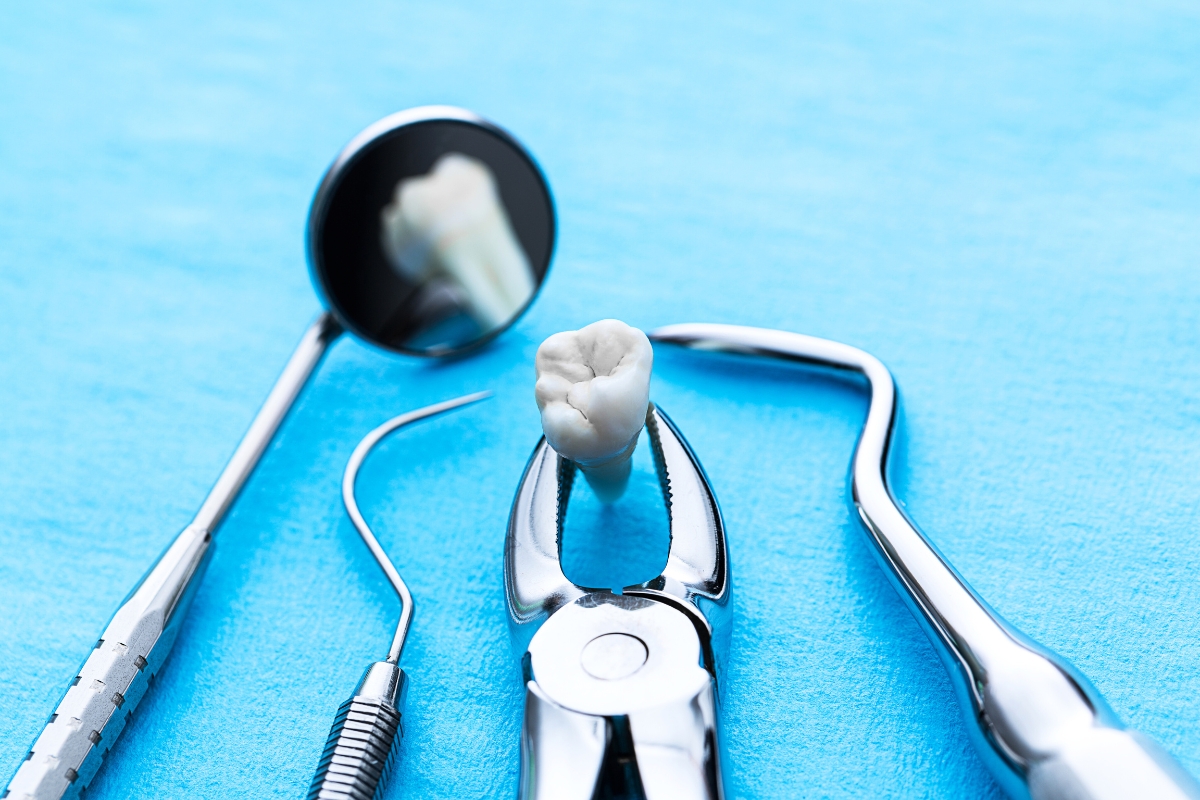1777 N Bellflower Blvd #213, Long Beach, CA 90815

Tooth extraction is a standard dental procedure often performed to relieve persistent dental pain or prepare the mouth for further treatment. While it brings relief, proper post-operative care is crucial to avoid complications like jaw pain that can hinder recovery.
This guide offers valuable insights into understanding and managing jaw discomfort following a tooth extraction and outlines the expected healing timeline.
How Long Will Your Jaw Hurt After Tooth Extraction?
Tooth extractions are commonly performed to address issues like decay, crowding, or impacted teeth. This is especially true for wisdom teeth, which typically emerge between ages 17 and 25. In many cases, they may not erupt properly due to limited space, leading to discomfort or infections that necessitate removal.
Many patients are curious about the timeline for jaw pain after extraction. Although healing experiences vary, most people see major improvement within two weeks. A blood clot usually forms at the extraction site within the first 24 hours—this is a critical part of the healing process.
Swelling and tenderness tend to decrease by day 3, while jaw pain and stiffness typically begin to ease within 7–10 days. Any mild bruising around the face usually fades within two weeks. If stitches are used, they are generally removed or dissolve naturally within a week unless the procedure was more complex.
Common Causes of Jaw Pain After Extraction
Jaw pain after a tooth extraction in Long Beach, CA, can stem from several potential sources. Understanding these causes can help ensure timely treatment and smoother healing.
- Dry Socket: One of the most common complications, a dry socket occurs when the protective blood clot is lost too early. Without this clot, the underlying nerves and bone are exposed, leading to significant pain. To reduce risk, avoid actions like using straws, smoking, or aggressive rinsing.
- Infection: If oral hygiene is not maintained, bacteria can enter the site and cause infection, resulting in swelling, throbbing pain, or pus. Consistent cleaning and avoiding trapped food particles are key to prevention.
- Muscle Strain: Holding the mouth open for extended periods during surgery can cause jaw muscle soreness. This typically subsides on its own with rest and gentle movement.
- TMJ Involvement: Sometimes, jaw pain may be unrelated to the extraction site and instead be linked to temporomandibular joint (TMJ) disorders. These cases may require additional evaluation.
Managing Jaw Pain After a Tooth Extraction
Addressing jaw pain early is crucial to ensure comfortable healing. Depending on the underlying cause, different treatment strategies may be recommended:
- Dry Socket Relief: A dental professional can clean the site and apply medicated dressings to relieve pain and promote healing.
- Infection Treatment: Antibiotics and drainage might be necessary if an oral infection has developed.
- Muscle Soreness: Over-the-counter pain relievers and simple jaw exercises can provide relief from mild muscle pain.
- TMJ Disorders: Treatment might include splints, physical therapy, or other dental interventions tailored to joint-related pain.
Preventive Measures and Oral Health
Preventing jaw pain begins with good post-operative habits. Follow all aftercare guidelines closely—this includes avoiding smoking, rinsing gently, sticking to soft foods, and staying on top of your oral hygiene routine. Regular checkups help ensure everything is healing as expected and provide an opportunity to address any discomfort early.
According to the American Association of Oral and Maxillofacial Surgeons, approximately 85% of wisdom teeth eventually need to be removed, highlighting the importance of proper post-extraction care.
In the end, healing from a tooth extraction involves more than just rest—it requires attentive care to reduce the risk of jaw pain and other post-operative complications. By understanding the causes of discomfort and taking proactive steps, you can significantly improve your recovery experience.
If jaw pain persists beyond the expected timeline, it may signal an underlying issue that requires professional assessment. Staying informed and following aftercare instructions diligently ensures a smoother, more comfortable healing process. Prioritize your oral health, and you’ll be back to your normal routine with a healthier smile in no time.

